News & Updates

National Neighborhood Indicators Partnership: A National Network Supporting Local Data
In September 2024, HDC’s Emma Kern attended the National Neighborhood Indicator Partnership (NNIP) Partners’ Meeting in Detroit, Michigan hosted by NNIP partner Data Driven Detroit. From coordinating partner cities and organizations across the country that support local priorities, to recruiting new cities and advancing equity on the national level, NNIP is a growing network of changemakers dedicated to using data to shape strategies and investments so all neighborhoods are places where people can thrive.

Elevating Our Partnerships In a Shared Vision for a Thriving Household Need Data Ecosystem
Since the release of our latest Data Landscape Report for 2024, we have been inspired by the discussions it has catalyzed and are excited by the energy beginning to develop around building data capacities and data culture for supporting households in need. Mahalo to the Hawai‘i Alliance of Nonprofit Organizations for creating space for a panel discussion on “Data Capacities and Culture in Human Service Organizations” in October at this year’s HANOCON.

Enhancing Hawai‘i’s Household Need Data Landscape: An Update to Aloha United Way’s 211 Search Engine and Dashboard
Aloha United Way (AUW) has connected Hawaiʻi residents to social services through 211 since 1990 when they transitioned a paper record-based service to an electronic database of over 3,000 health and human service programs across Hawai‘i. Since then, AUW 211 has emerged as an important resource that allows community members to access social services of all kinds. By offering a call line, text, email, live chat, and online access, AUW helps community members in need navigate a service provider landscape that may offer a lot of assistance but can be difficult for many to access on their own.

Employment Opportunity with Hawai‘i Data Collaborative: Data Visualization Specialist
We are recruiting a Data Visualization Specialist to support our ongoing work to make data in Hawai‘i more accessible, meaningful and relevant for addressing pressing challenges. In this role, you will be responsible for building data visualization and dashboard products across a range of topics and use cases, primarily centered around the domain of household assistance. Hawai‘i Data Collaborative works mostly through partnerships with non-profit, philanthropic and government stakeholders, so this role will necessarily entail collaboration with both internal team members and counterparts in partner organizations.

In Our Latest Report, We Profile Four Organizations with a Shared Vision for a Thriving Household Need Data Ecosystem
We are excited to share our latest Data Landscape Report for 2024. Since our last report in 2022, we have partnered with frontline service providers, philanthropic funders, and government stakeholders to address their data challenges by building data capacities for a more insightful and connected data ecosystem. Now in year three of working alongside community partners to build these data capacities, we are releasing this report to highlight the stories of four organizations actively working to transform how they use and share data to improve outcomes for the households they serve, sharing a vision for a thriving data ecosystem.
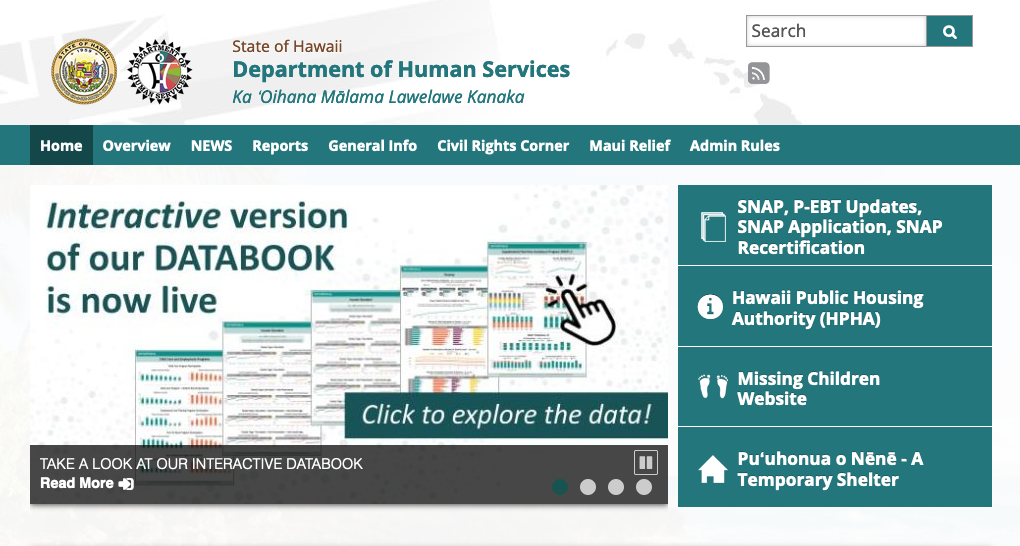
Making Household Need Data More Accessible: DHS Launches Its Interactive Databook
On April 16, 2024, the State of Hawaiʻi Department of Human Services (DHS) launched a new interactive version of their databook. As the largest state department that provides services for Hawai‘i residents across all islands, DHS collects a wealth of data regarding the conditions and needs of communities statewide. The interactive databook – along with the PDF version that will continue to be released annually – will provide valuable aggregated, anonymized, community-specific data so that the public, service providers, and policymakers may make data-guided decisions when it comes to accessing, providing, and funding benefits and services.
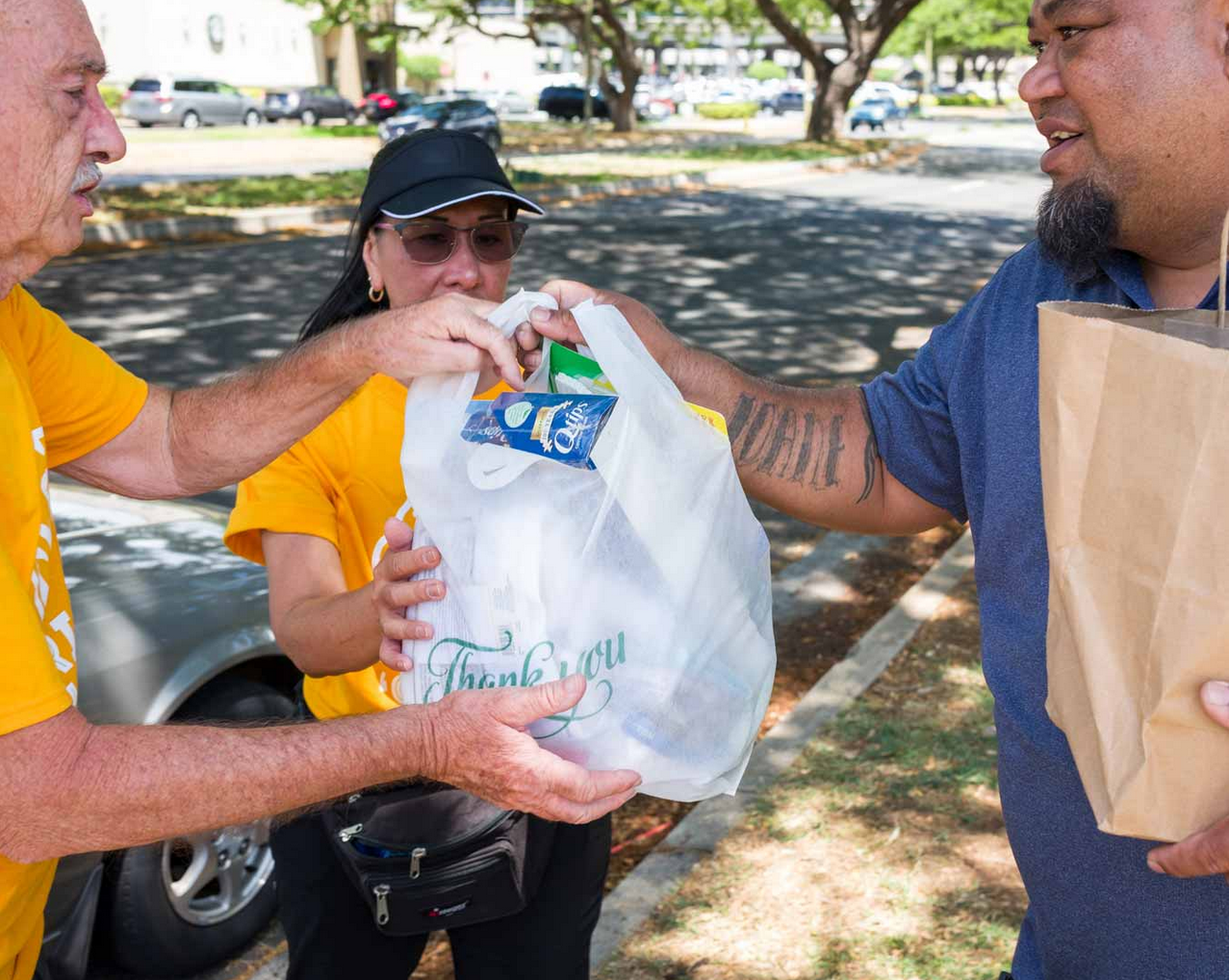
Building Data Capacity to Transform How We Fight Hunger in Hawai‘i
Hawai‘i needs more timely, quality, local data to better understand food security and the related challenges of households statewide. Our partners at Hawai‘i Foodbank - the largest food bank in the state - aspire to be a source of this information so that all concerned with supporting households in need have timely information to do so. While they currently track, report and share data on the number of people served and pounds of food distributed, they have identified an opportunity to collect data to better understand the circumstances of those seeking food assistance - data that will inform better responses to food insecurity and related challenges in Hawai‘i.
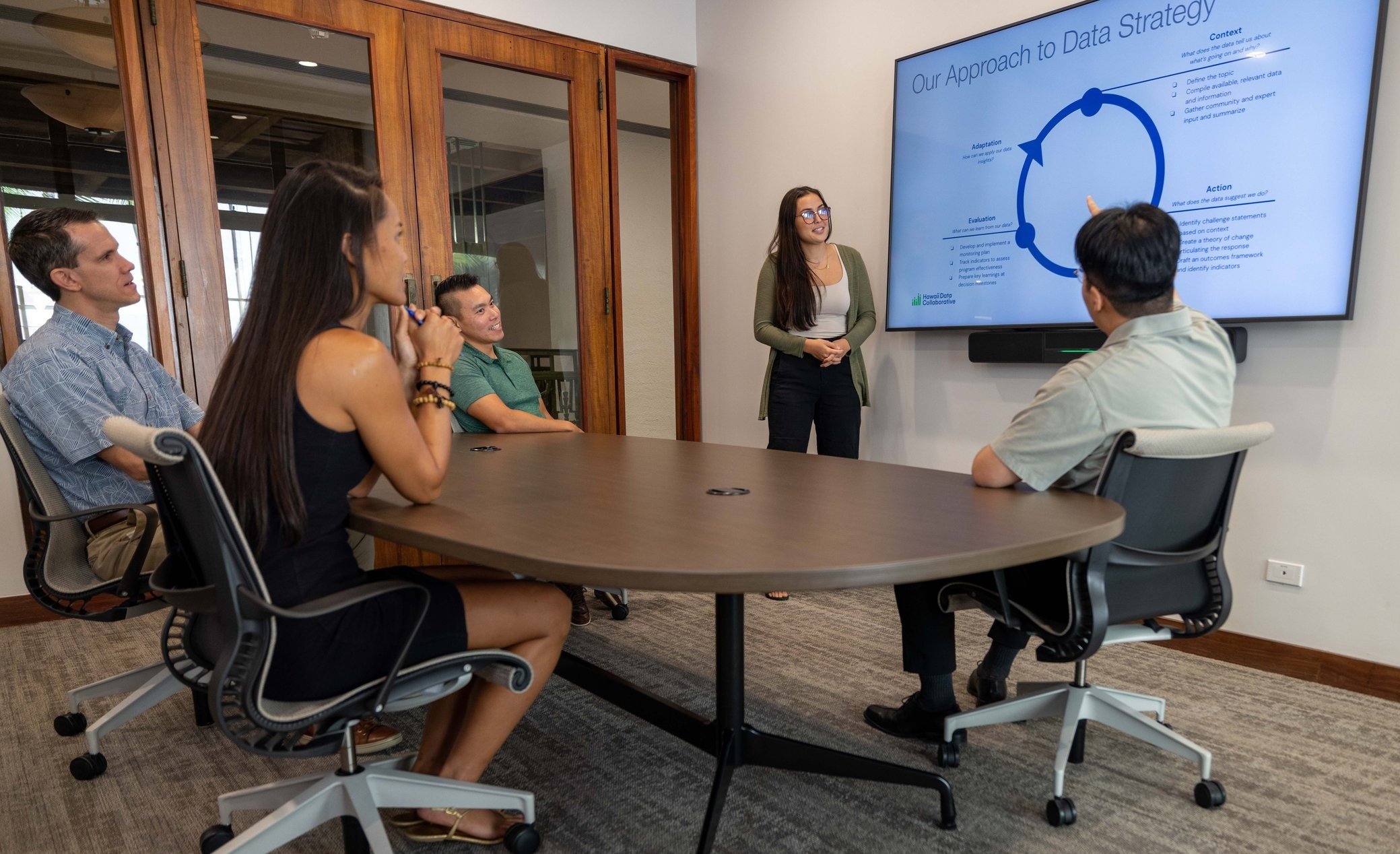
Strengthening Hawai‘i’s Data Ecosystem Through Capacity Building and Network Connections
After taking time to connect and recharge with family and friends at the end of 2023, we at HDC are off to another year of building data capacities for a better Hawai‘i. In starting a new year, we remain committed to building sustained data capacities that will transform not only the work of individual organizations, but over time, the effectiveness of direct household assistance overall. To do so, we will focus on supporting the connections across those working to transform how we understand and support community members struggling to get by in Hawai‘i, while also continuing to engage in direct partnerships with organizations committed to using data to change the household need landscape.

Uplifting Nonprofit Service Provider Data to Support Struggling Households
In this new year, we continue to focus on collaborating with service providers, government agencies, and private sector funders working to support Hawai‘i households in need. While 2023 marks the start of our first official post-Covid year, data from a recent Aloha United Way (AUW) report suggests many who were struggling to get by prior to the pandemic may be faring much worse now. AUW conducted their interim study independently due to the lack of local and current data, as national sources we traditionally relied upon for understanding current household need would take years to access, making it difficult to extract insights and make decisions in a timely manner.
For an issue as important as household well-being, we should not be relying primarily on lagging national data sources. In order for data to be relevant, it needs to be timely. Otherwise, how will it guide our leaders to understand and address the unique challenges of households struggling to get by in Hawai‘i today?

Building Our Data Capacities to Respond to Household Need
Following the release of our first Hawai‘i Data Landscape report in early 2021, we set out to apply what we learned about the data challenges and opportunities to an urgent issue arguably only exacerbated by the pandemic: the struggle of households just trying to get by. Our decision to focus on data for those working to support households and communities in need led us to reach out to leaders across sectors with a guiding question: What are the opportunities for community to enhance its ability to gain and act on data insight to serve households in need?
We welcome you to read our 2022 Report to better understand Hawai‘i’s current data landscape around household need, and how we might move forward using data to work better together.

“The New Data Culture for Hawaiʻi” Discussed at the 2022 Hawaiʻi Book and Music Festival
Nick Redding, Executive Director of the Hawai‘i Data Collaborative, joined the Innovation Panel at the 2022 Annual Hawai‘i Book and Music Festival to discuss “The New Data Culture for Hawaiʻi,” highlighting the need for quality, timely data, our over-reliance on lagging national data sources, and how the Ko‘olau Housing Hui demonstrates investing in data capacities serves all stakeholders working to address housing security on the Windward side.

Understanding Household Need: Our Data Support Tools & Resources
At the Hawai‘i Data Collaborative, one of our core priorities is improving data accessibility. As our state works to recover from the far-reaching economic impacts of the COVID pandemic, those working to support Hawai‘i's households in need of assistance need access to relevant and timely data now more than ever. Recognizing this need, we have developed a suite of tools and resources that make data more accessible for communities, non-profits, policymakers and other working to support Hawai‘i's households struggling to get by.
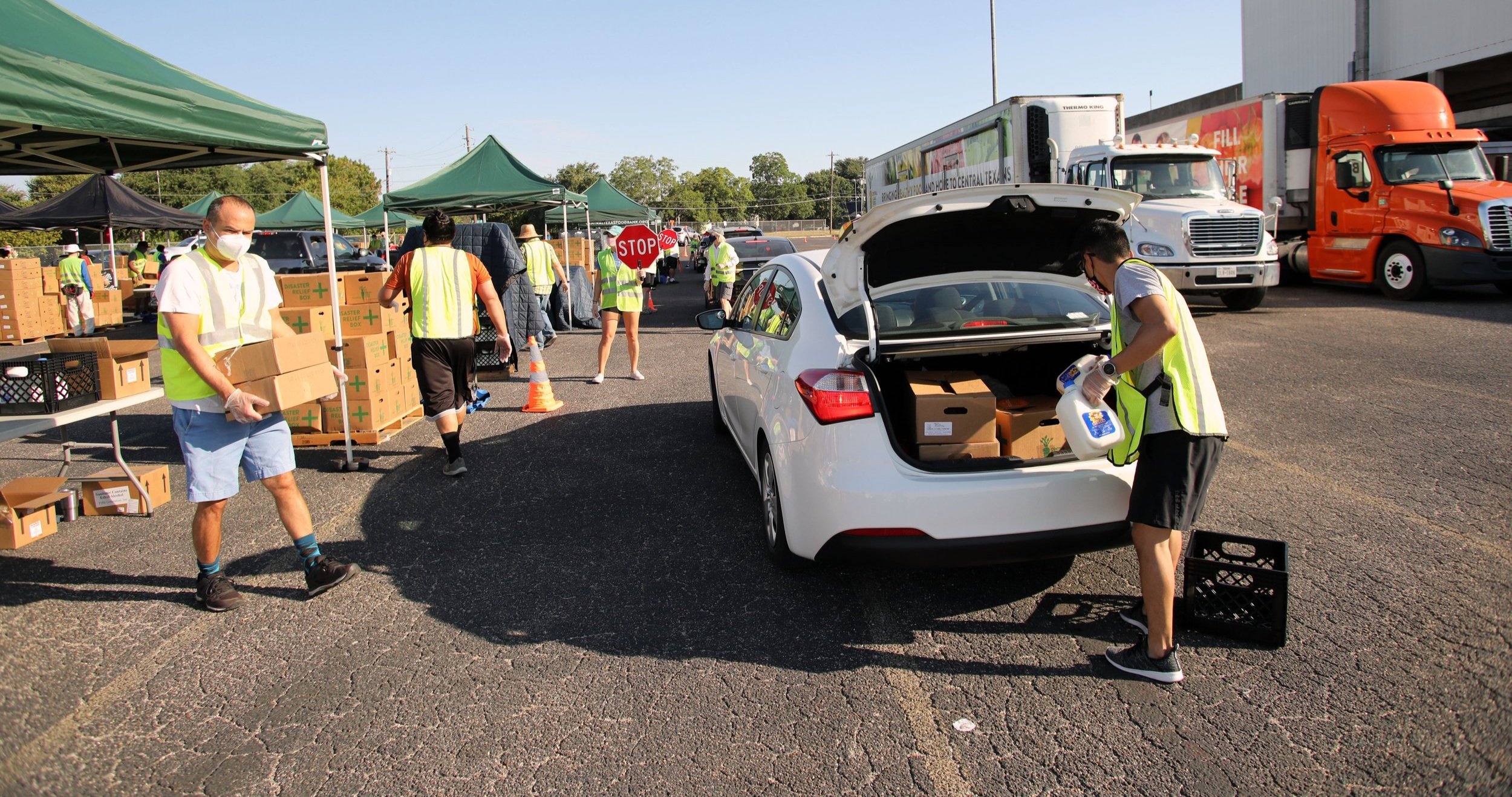
Our Focus on Household Need Data in 2022
Over the past almost two years, we have frequently been asked to support another critical data challenge: how to identify and gain insight from data to understand households in need of assistance. Late last year, we interviewed multiple leaders of organizations supporting households in need to understand how readily they are able to gain insight from the data they collect while doing their work, and the extent to which they are able to effectively share data amongst peer organizations, government agencies and private sector funders to gain broader insights. We learned a lot from these discussions, inspiring us to make household need data our focus for 2022.
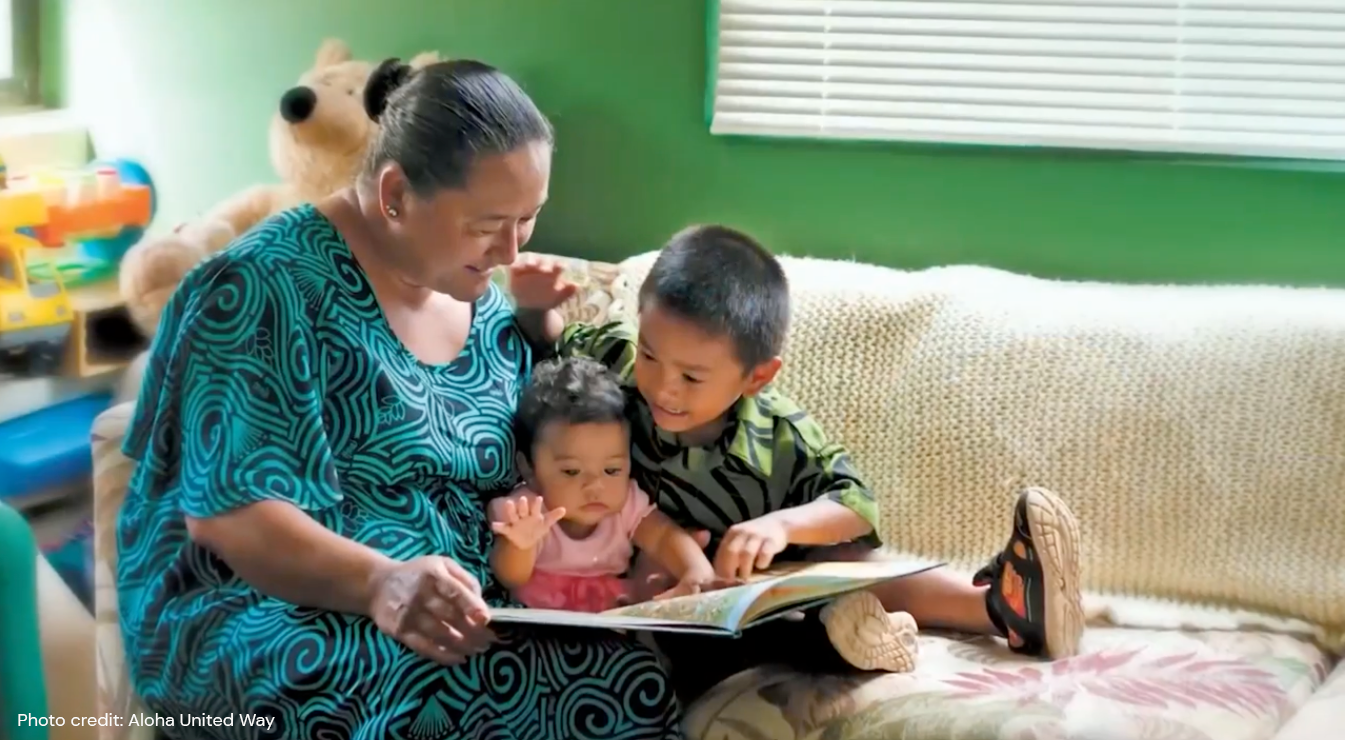
Aloha United Way and Hawai‘i Data Collaborative Launch Enhanced 211 Dashboard
Aloha United Way (AUW), in partnership with Hawai‘i Data Collaborative, upgraded the data system supporting the 211 Program to ensure the data collected are accurate, and can be reliably leveraged to understand the areas in which Hawai‘i residents are struggling with in near real-time. With the upgrade complete and the data platform stabilized, we are excited to announce the launch of an enhanced AUW 211 Dashboard.

ALICE Conversation Series: Our Friends, Neighbors and ‘Ohana
On June 24, 2021, Aloha United Way (AUW) kicked off their ALICE Conversation Series with the first event “ALICE - Our Friends, Neighbors and ‘Ohana.” AUW’s community partners shared how they’re working to support ALICE, including Feed the Hunger Fund, Kokua Kalihi Valley, Parents and Children Together, and Waikiki Community Center. Nick Redding, Executive Director of Hawai‘i Data Collaborative (HDC), was also invited to present HDC’s work of filling timely data gaps so that those working to help ALICE can keep pace with the needs of ALICE as it evolves over time.
